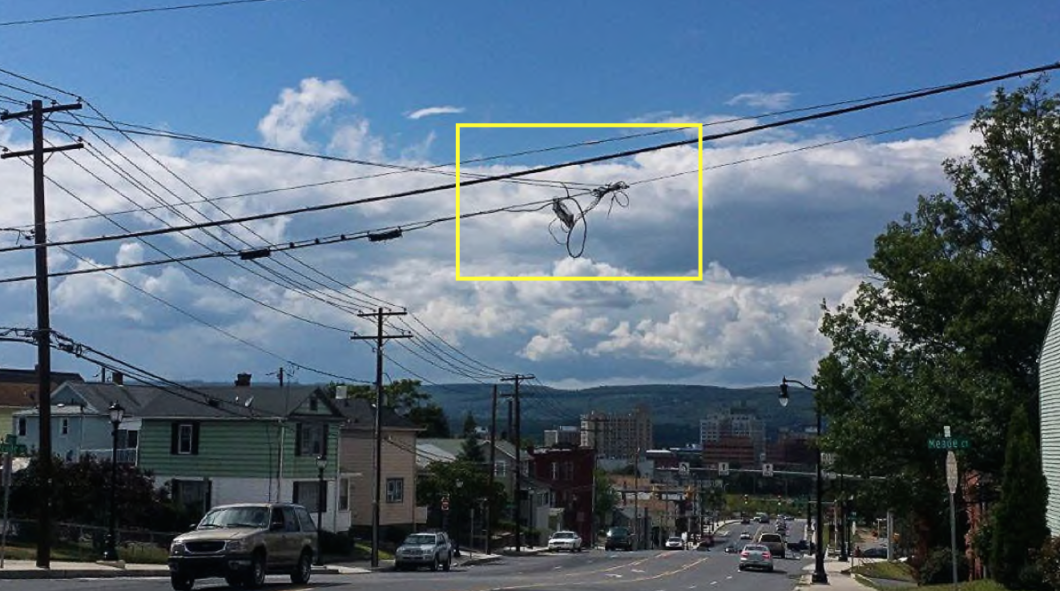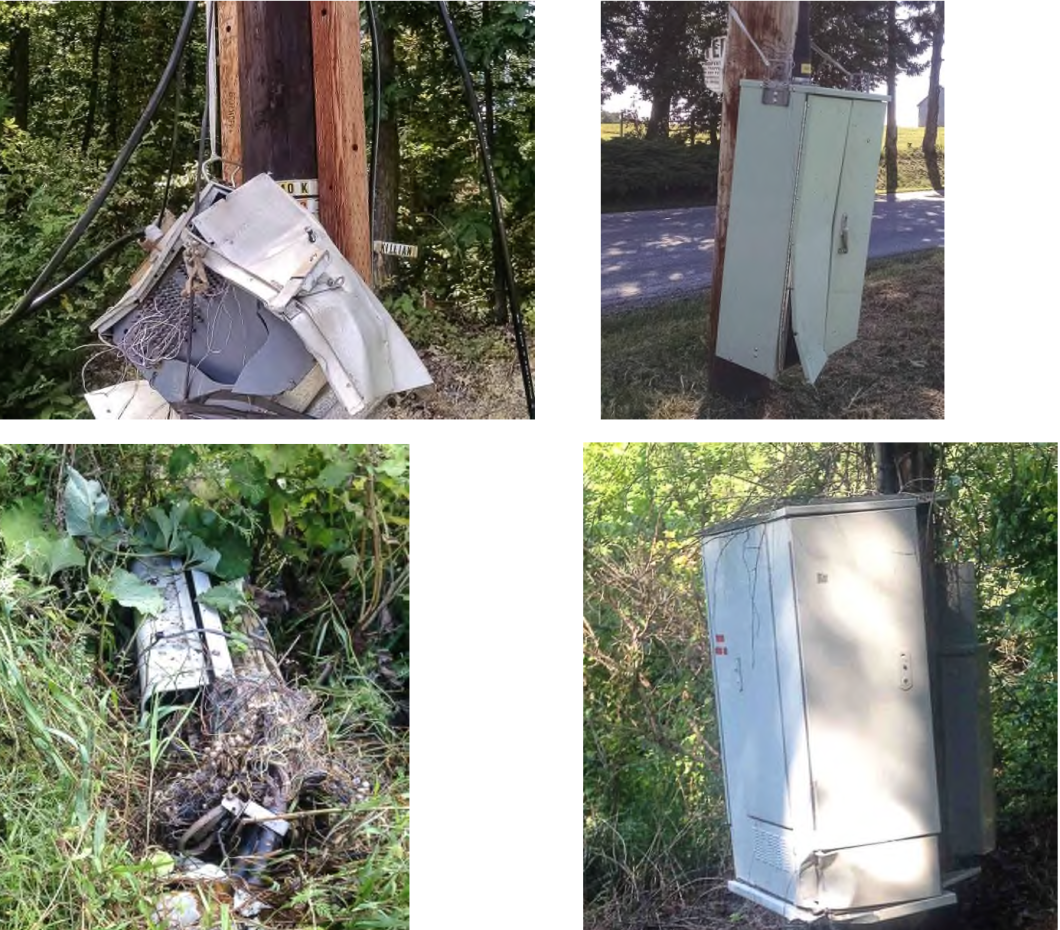Pennsylvania Investigating State Of Verizon’s Landline Service
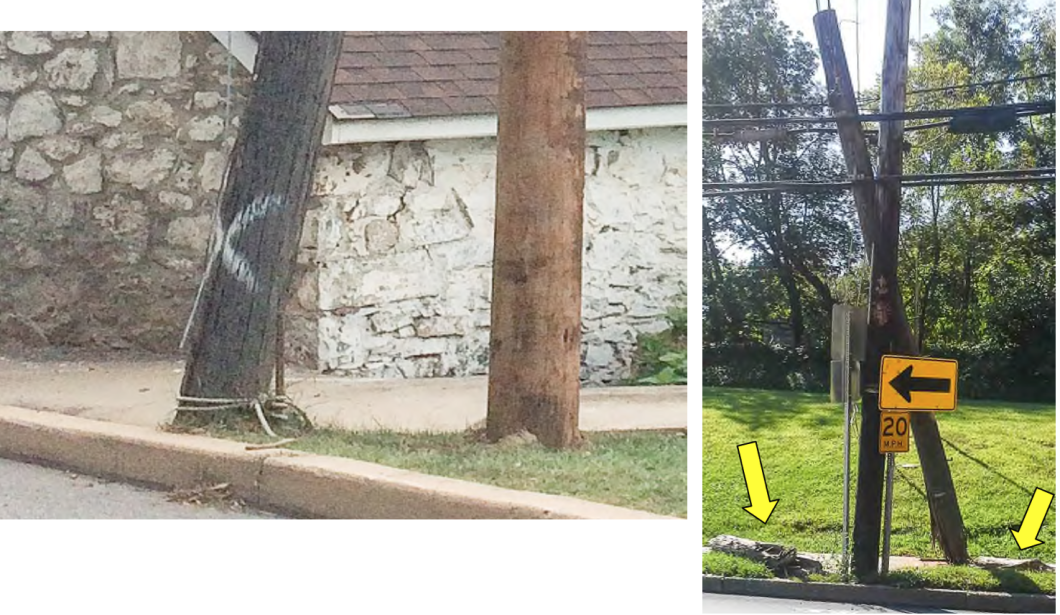 Verizon is once again being accused of neglecting its copper-wire landline network. Following complaints from workers of damaged, sagging lines and unsafe utility poles, the Pennsylvania Public Utility Commission has announced it will be looking into whether or not the telecom giant’s actions put employees and the public at risk.
Verizon is once again being accused of neglecting its copper-wire landline network. Following complaints from workers of damaged, sagging lines and unsafe utility poles, the Pennsylvania Public Utility Commission has announced it will be looking into whether or not the telecom giant’s actions put employees and the public at risk.
Back in Oct. 2015, the Communications Workers of America, representing around 4,700 Verizon employees tasked with maintaining the company’s networks, filed a petition [PDF] with the PPUC, asking the commission to investigate the “safety, adequacy, and reasonableness” of Verizon’s copper-wire service in the state.
The CWA says its own investigation of Verizon’s PA landlines turned up “numerous instances throughout the Commonwealth of physical plant in an appalling state of disrepair that pose a safety hazard to utility employees and the public.”
Among the allegations made in the petition:
• That when new utility poles are installed to replace old, damaged, and leaning poles, Verizon — unlike other utilities — is not moving its service to the new pole. This results in “double poles” that the CWA argues are dangerous (see images at top for examples from the petition).
“Unfortunately, when a double pole is left in place, it continues to deteriorate, resulting in old poles that are bent, broken, and even sheared off at the base,” reads the petition. “Verizon fails to remove its facilities even from poles that are in a deplorable state of repair and represent an immediate safety hazard to the public and utility workers.”
• Then there is the phenomenon of the “dangling pole,” which occurs when there is no room for both the new pole and the old pole. But, contends the CWA, rather than move service to the new pole, Verizon cables connect to a dangling remnant of the old pole. These chunks of heavy wood can hang quite awkwardly, as the CWA illustrated with a series of photos:
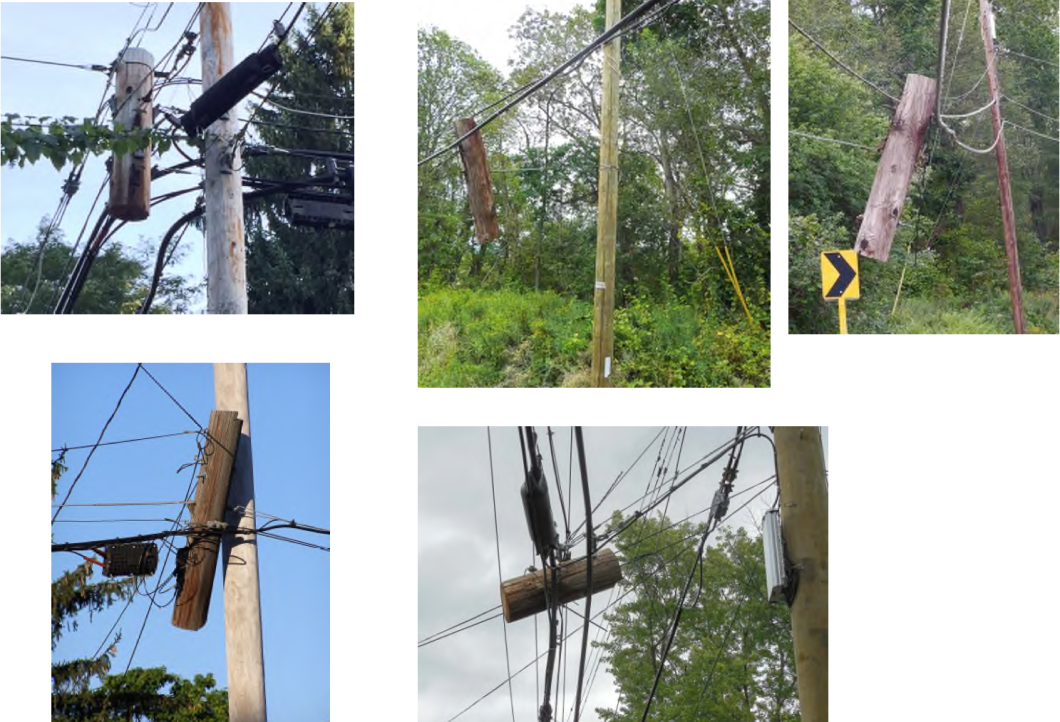
• And when a road is widened — meaning you can’t leave the old pole in the new traffic lane, or have a dangling hunk of pole floating over passing cars — the CWA says Verizon is not taking the time or expense to run a longer cable to the new road. Instead, it’s just allowing its gear to hang out over the roadway, unconnected to anything:
That means that if there’s a problem at this connection, the Verizon worker would need to go out into the road, halt traffic and still be able to reach the facilities.
• The union found multiple Verizon cross-connect cabinets and remote terminals that had badly damaged by humans and animals. The petition notes that even a small opening in these cabinets can allow for rodent infestations:
• Speaking of animals, the petition includes photos damaged phone cables where the protective coating has cracked open, allowing for the creation of what appears to be a nest:
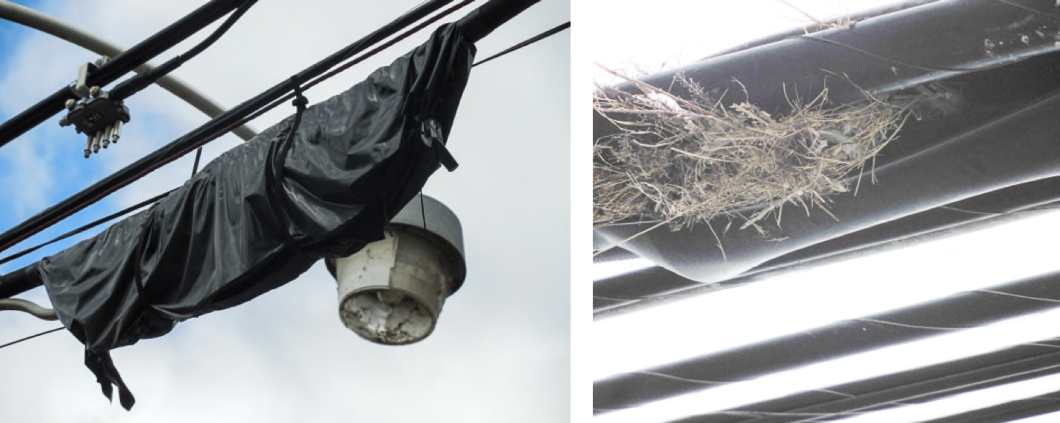
Last week, a PPUC administrative law judge ordered a hearing on the matter, with the process beginning in earnest on March 18.
“Pennsylvania families are paying top dollar every month for reliable telephone service and safe neighborhoods and streets. They deserve better than Verizon’s reckless disregard for public safety and service,” said CWA District 2-13 Vice President Ed Mooney in a statement. “CWA members across the state are climbing poles and fixing equipment every day to make sure that communities get the service they deserve and the service they pay for. Despite its billions of dollars in profits, Verizon knowingly is leaving its infrastructure in a state of disrepair, risking the safety of telephone workers and Pennsylvania residents.”
Verizon, which has not commented on this matter, has previously accused the union of using similar petitions and complaints of neglect as a contract negotiation tool. But it’s not just the CWA that has gripes with Big V.
In 2014, the company was accused of similar neglect in California, where complainants said the company was attempting to use the sad state of its copper wires to push consumers onto FiOS service.
In Jan. 2015, the FCC slapped Verizon with $2 million in penalties for failing to investigate complaints of poor or disconnected service in rural communities.
More recently, officials in 16 New Jersey towns said that Verizon has let their service rot on the vine even though the company has no apparent plans to even bring FiOS to their areas.
Want more consumer news? Visit our parent organization, Consumer Reports, for the latest on scams, recalls, and other consumer issues.


